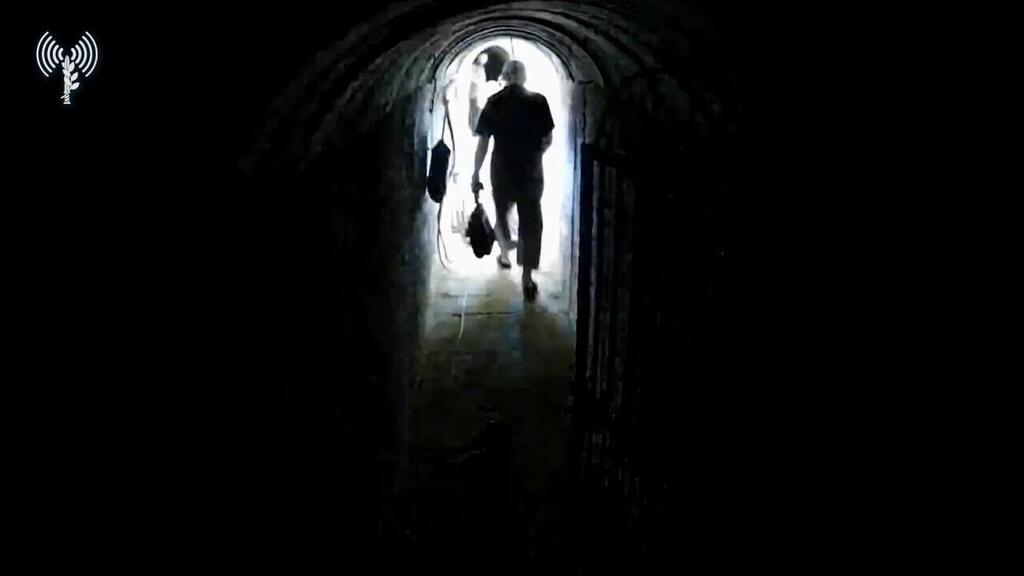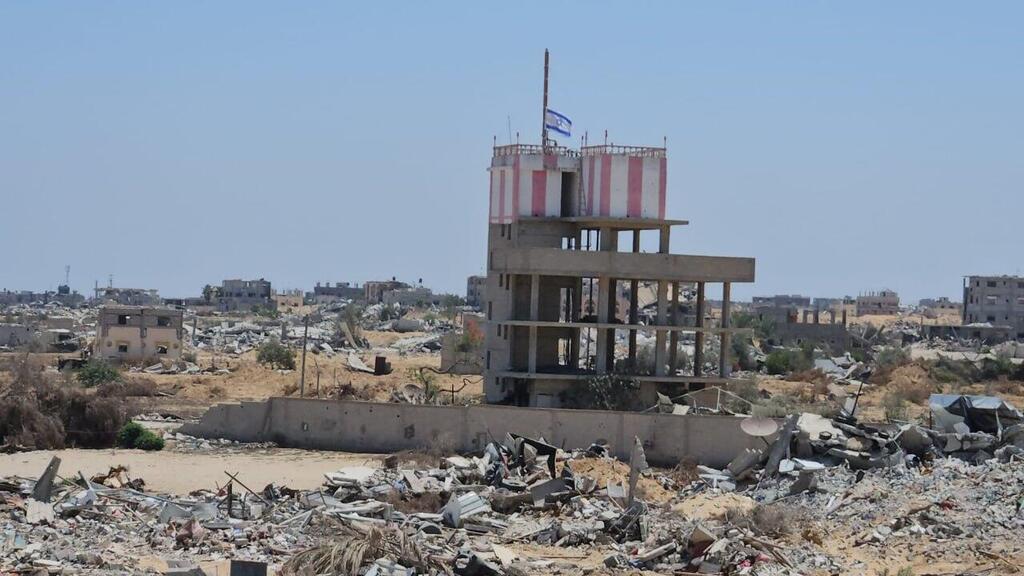The level of devastation in the Gaza Strip caused by a nine-month Israeli offensive likely has helped push Hamas to soften its demands for a cease-fire agreement, several officials in the Middle East and the U.S. believe.
Hamas over the weekend appeared to drop its longstanding demand that Israel promise to end the war as part of any cease-fire deal. The sudden shift has raised new hopes for progress in internationally brokered negotiations.
Prime Minister Benjamin Netanyahu on Sunday boasted that military pressure – ”including Israel's ongoing two-month offensive in the southern Gaza city of Rafah – is what has led Hamas to enter negotiations"
Hamas, an Islamic terror group that seeks Israel's destruction, is highly secretive and little is known about its inner workings.
But in recent internal communications seen by The Associated Press, messages signed by several senior Hamas figures in Gaza urged the group's exiled political leadership to accept the cease-fire proposal pitched by U.S. President Joe Biden.
The messages, shared by a Middle East official familiar with the ongoing negotiations, described the heavy losses Hamas has suffered on the battlefield and the dire conditions in the war-ravaged territory. The official spoke on condition of anonymity to share the contents of internal Hamas communications.
It was not known if this internal pressure was a factor in Hamas' flexibility. But the messages indicate divisions within the group and a readiness among its top leaders to reach a deal quickly, even if Hamas' top official in Gaza, Yahya Sinwar, may not be in a rush. Sinwar has been in hiding since the war erupted last October and is believed to be holed up in a tunnel deep underground.
U.S. officials declined to comment on the communications. But a person familiar with Western intelligence who spoke on the condition of anonymity to discuss the sensitive matter said the group's leadership understands its forces have suffered heavy losses and that has helped Hamas move closer to a cease-fire deal.
2 View gallery


Hamas leader Yahya Sinwar has been hiding in tunnels underneath Gaza
(Photo: IDF Spokesperson's Unit)
Two U.S. officials say the Americans are aware of internal divisions within Hamas and that those divisions, the destruction in Gaza or pressure from mediators Egypt and Qatar could have been factors in the group softening its demands for a deal. The U.S. officials spoke on the condition of anonymity to discuss the Biden administration's view of the current situation.
The Middle Eastern official shared details from two internal Hamas communications, both written by senior officials inside Gaza to the group's exiled leadership in Qatar, where Hamas' supreme leader, Ismail Haniyeh, is based. The communication suggested that the war had taken a toll on Hamas fighters, with the senior figures urging Hamas' political wing abroad to accept the deal despite Sinwar's reluctance.
Hamas spokesperson Jihad Taha dismissed any suggestions of divisions within the group. "The movement's position is unified and is crystallized through the organizational framework of the leadership" he said.
The intelligence official showed The Associated Press a transcript of the communications in Arabic, but declined to share specific details about how the information was obtained, or the raw form of the communications. The official said the communications took place in May and June and came from multiple senior officials inside the group's military wing in Gaza.
The messages acknowledged Hamas fighters had been killed and the level of devastation to the Gaza Strip wrought by the Israeli campaign in the enclave. They also suggest that Sinwar either isn't fully aware of the toll of the fighting or isn't fully communicating it to those negotiating outside of the territory. It was not known whether Haniyeh or any other top officials in Qatar had responded.
Egypt and Qatar have been working with the United States to broker a cease-fire and end the devastating nine-month war. After months of fits and starts, talks resumed last week and are scheduled to continue in the coming days.
A deal is still not guaranteed. Netanyahu's office announced over the weekend that "gaps still remain." The U.S. officials said they are cautiously optimistic about the prospects for a cease-fire based on the latest developments, but stressed that numerous efforts had looked promising only to fall through. Still, the sides appear closer to a deal than they have been in months. Both Hamas and Egyptian officials confirmed Saturday that Hamas has dropped a key demand that Israel commit up front to end the war. Netanyahu has repeatedly rejected this demand,.
Meanwhile, Shin Bet chief Ronen Bar left for Cairo Monday morning for discussions on a possible cease-fire deal that will return the hostages. He will also discuss the efforts to build an underground barrier on the Philadelphia route to prevent the smuggling of weapons from Egypt by Hamas in Gaza via the Rafah crossing. On Wednesday, Mossad head Dedi Barna, is expected to leave for Qatar , where he will meet with CIA head Bill Burns, and the Prime Minister of Qatar, Mohammed Al-Thani.
Officials in the political and security system were surprised by Netanyahu's public announcement of red lines for the negotiations for the release of the hostages. The announcement came shortly before Netanyahu and Defense Minister Yoav Gallant and military personnel met for a security discussion and situation assessment ahead of the new negotiations.
An Israeli security official called this "improper conduct that will harm the chance of returning the hostages home. There is also a question of timing here. If you issue the announcement even negotiations have started then why negotiate? If this is the conduct, the hostages will never return."



